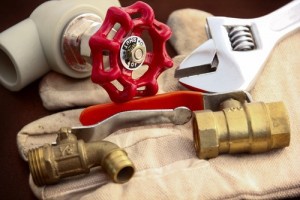 While all you need is your nose to realize something’s not right, pinpointing the actual problem in the sump pump system and making necessary repairs requires the expertise and skills of a professional plumber.
While all you need is your nose to realize something’s not right, pinpointing the actual problem in the sump pump system and making necessary repairs requires the expertise and skills of a professional plumber.
Here are a few likely explanations for sump pump odors:
Dry Drain Trap
If the sump basin incorporates a drain connected to the sewer line, water in a U-shaped trap inside the drain pipe functions to seal out sewage odors. If the trap dries out during long intervals with no flow, sewer gas will leak into the home carrying pungent odors.
Broken Sewer Line
A sewer line located in or beneath the foundation may be ruptured or leaking. Raw sewage from the line percolates into ground water below the basement floor that eventually rises into the sump basin. If the pump is operational, tainted ground water is pumped out of the sump basin as it rises. However, sufficient sewage residue remains to cause odors that infiltrate the home. A plumber can determine if sewage is infiltrating ground water and track down the leak.
Stagnant Water
If the sump pump never fully empties the basin, a defective or binding float switch may be at fault. The constant presence of water in the basin causes stagnation that produces odor. A plumber will drain the basin entirely and test operation of the pump to set the proper on/off levels of the float switch. He can also rinse the basin and pump a mixture of bleach and water through the discharge line to deodorize the entire system.
For professional service to track down sump pump odors and resolve the cause, contact Rodenhiser Plumbing, Heating & Air Conditioning.
Image via Shutterstock.com